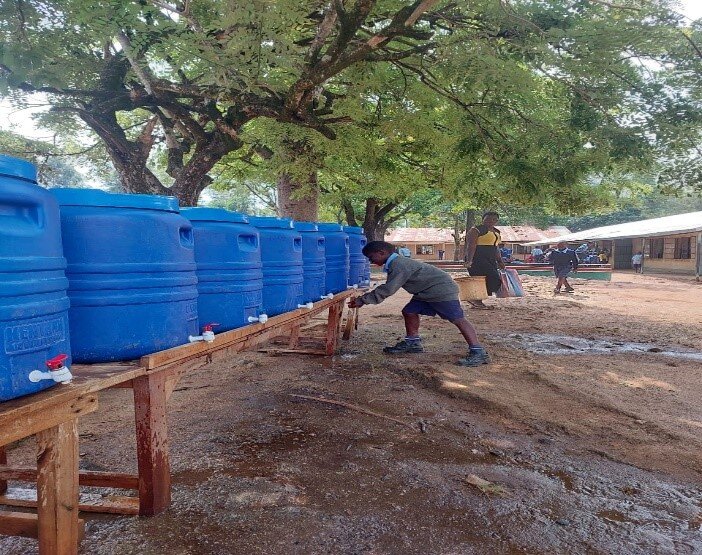By Nancy Itambo | Project Officer
1.0: ACTIVITY PROCEEDINGS
In July 2024, WE REACH monitored and evaluated our WASH project partner schools of 2023.This was done to evaluate the project's impact since its inception, highlighting key achievements, challenges, and recommendations for future improvements.
We visited the 10 schools and used several means to collect data:
From the discussions what came out clearly was that the project had had a positive impact to the schools we had worked with. The schools also expressed satisfaction with the project’s outcomes.
Summary of findings:
Case Study:
At Emakhawale Primary School, the WASH project resulted in remarkable improvements in hygiene behaviors, health outcomes, and academic achievement. Key success included formation of health clubs that promote and monitor hygiene practices, enhancement of hygiene initiatives size to promote good sanitation practices. Another was that following a training session on proposal writing provided by We Reach, the headteacher successfully wrote and secured funding from Blue Tanks and LifeStraw for handwashing stations and drinking water tanks. The headteacher after the training prioritized WASH initiatives which led the school to receive a 10,000L water tank from the CDF. These efforts resulted in a reduction in water-related diseases such as diarrhea and typhoid, which increased school attendance rates continued health and consistent school attendance led to better academic outcomes. The project also achieved positive behavioral change, with students taking leadership roles in the health club, promoting a culture of hygiene and accountability These results highlight the effectiveness of the WASH project in the school.
2.0: LESSONS LEARNT
3.0: CHALLENGES
4.0: RECOMMENDATION
5.0: CONCLUSION
To conclude, the WASH initiative has shown that it is capable of bringing about long-lasting changes in partner schools' infrastructure and hygiene practices. Nonetheless, resolving the issues raised is essential to guaranteeing the project's long-term viability and effectiveness. The initiative can continue to improve students' health and well-being and create a more favorable and healthy learning environment by putting the suggested activities into practice.
Through these initiatives, it will be made possible for every student, regardless of circumstances, to have access to the tools and assistance they need to uphold proper hygiene habits, consistently attend class, and reach their academic potential. Future WASH project success will mostly depend on adaptability, community involvement, and continuous monitoring.
Project reports on GlobalGiving are posted directly to globalgiving.org by Project Leaders as they are completed, generally every 3-4 months. To protect the integrity of these documents, GlobalGiving does not alter them; therefore you may find some language or formatting issues.
If you donate to this project or have donated to this project, you can receive an email when this project posts a report. You can also subscribe for reports without donating.
Support this important cause by creating a personalized fundraising page.
Start a Fundraiser